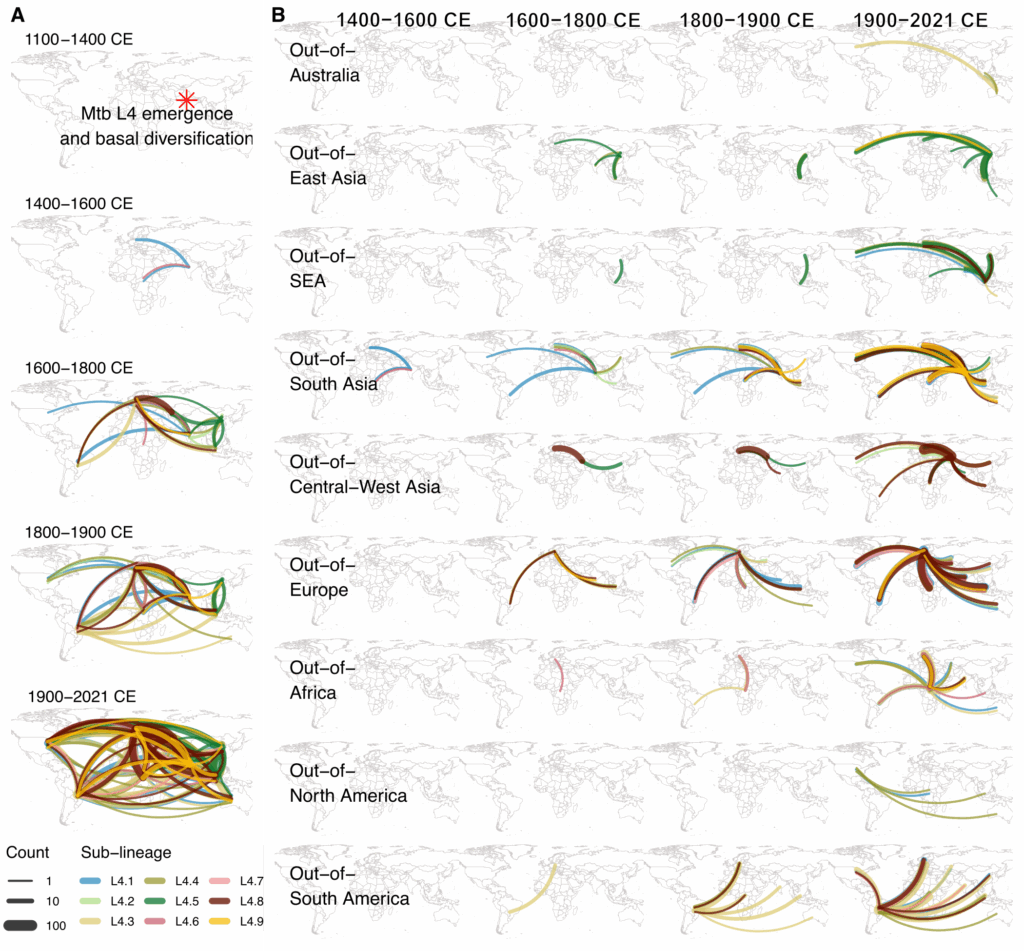Tracing the origin of Mycobacterium tuberculosis lineage 4

A new study published in mSystems by researchers from Mahidol University, including Bharkbhoom Jaemsai, Prasit Palittapongarnpim, and Pakorn Aiewsakun, presents new insights into the evolutionary history and global transmission of Mycobacterium tuberculosis lineage 4 (MTB L4), the most widespread lineage of the bacterium responsible for tuberculosis in humans.
In this study, titled “South Asian origin and global transmission history of Mycobacterium tuberculosis lineage 4”, the authors analysed more than 11,000 whole-genome sequences of MTB L4 from 106 countries, representing the most comprehensive dataset assembled for this lineage to date. The findings suggest that MTB L4 likely originated and diversified in South Asia during the 12th–13th centuries before spreading to other regions, including Europe, Africa, and the Americas, over the following centuries. Their results challenge earlier hypotheses that placed the origin of MTB L4 in Europe or in the Mediterranean, suggesting that South Asia, one of the main crossroads of historical trade networks, might have played a pivotal role in promoting the early intercontinental spread of MTB L4.
In addition, the researchers inferred that the population size of all major MTB L4 sub-lineages increased steadily until the mid-20th century, after which a sharp decline was observed. This pattern aligns with the introduction of antibiotics and improvements in public health, suggesting a widespread impact of these developments on the global bacterial population.
This study underscores the importance of broad and geographically diverse genomic sampling in reconstructing the transmission and evolution of infectious diseases. It also highlights how anthropological and historical factors have shaped, and continue to shape, the dynamics of pathogen spread on a global scale.
Read more: https://journals.asm.org/doi/10.1128/msystems.00427-25
Pakorn Aiewsakun
Corresponding author

